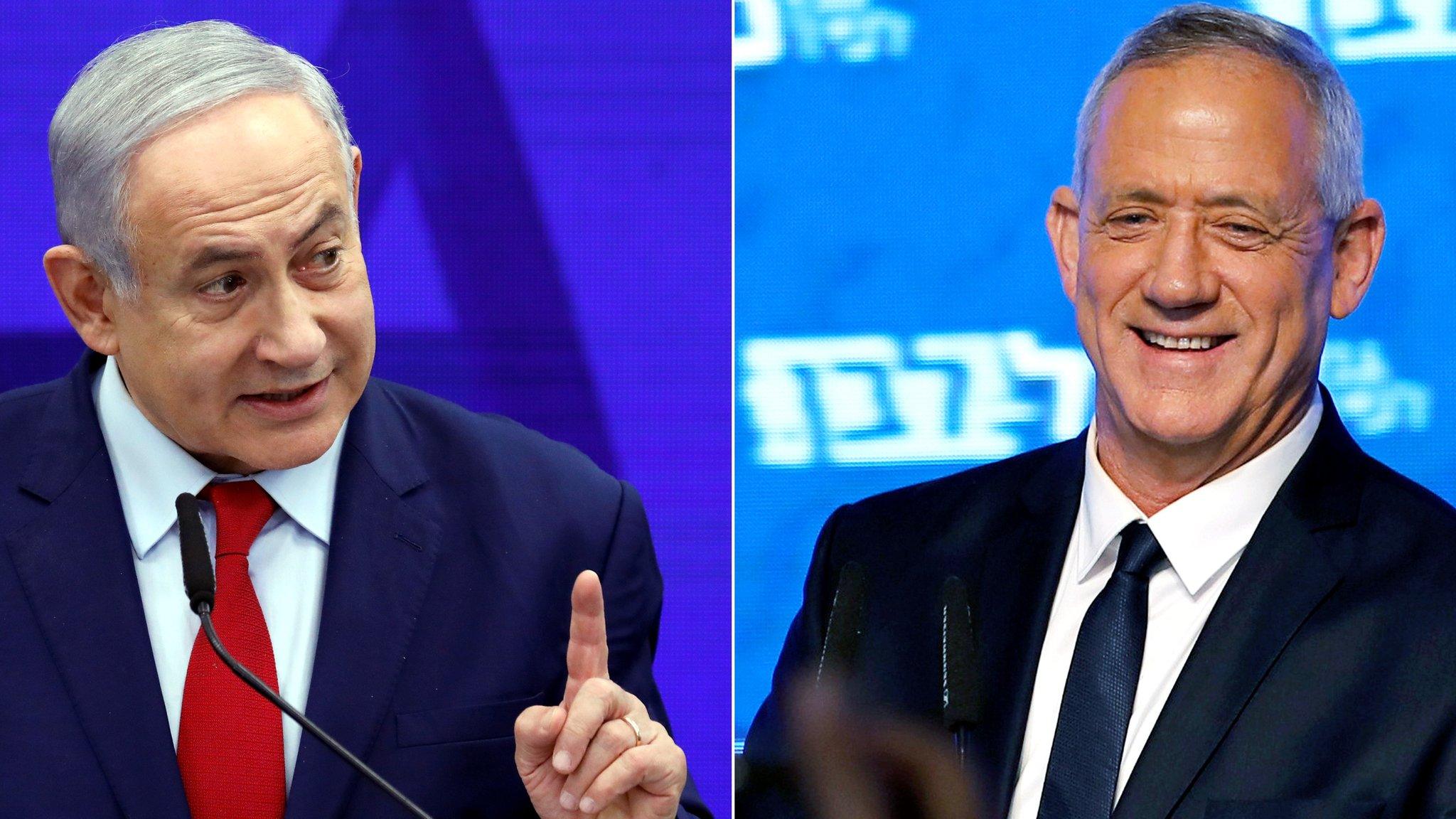Israel's Benny Gantz tasked with forming coalition government
- Published
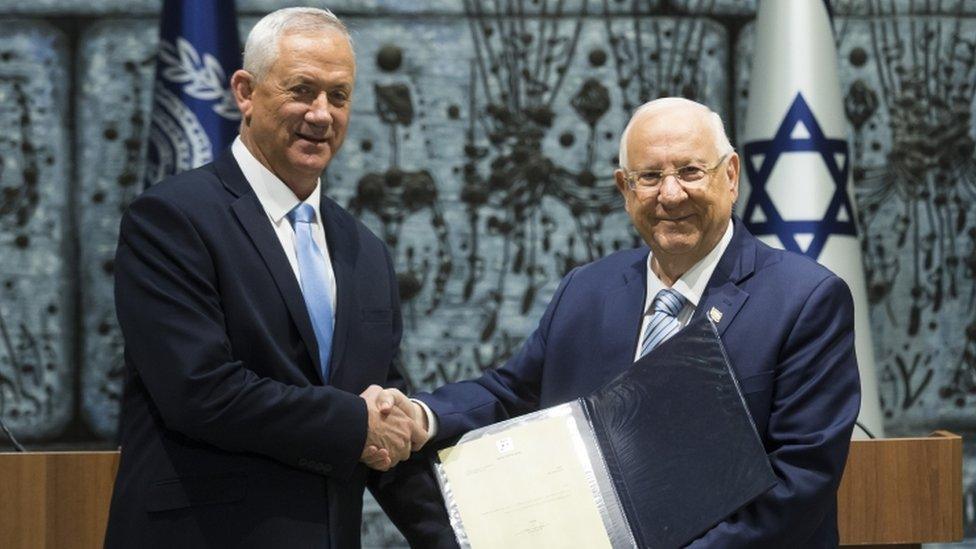
Benny Gantz (L) received the mandate from President Reuven Rivlin
Israeli ex-military chief Benny Gantz has been tasked with forming a coalition government after PM Benjamin Netanyahu's efforts ended in deadlock.
It is the first time that someone other than Mr Netanyahu has received such a mandate since 2009.
Speaking in Jerusalem on Wednesday, President Reuven Rivlin called on all sides to make "concessions".
Mr Netanyahu has been unable to build a coalition with a majority after September's inconclusive election.
Attempts to bring Mr Gantz's centrist Blue and White party into a national unity government with the prime minister's conservative Likud bloc failed.
Mr Gantz now has 28 days in which to form his own coalition.
"Everyone expects us to bring the political chaos to an absolute end," Mr Gantz said, accepting the nomination from President Rivlin.
"I promised to establish a liberal unity government, and that I intend to do."
September's poll saw Likud win 32 seats and Blue and White 33. Sixty-one seats are needed for a majority in the 120-seat parliament.
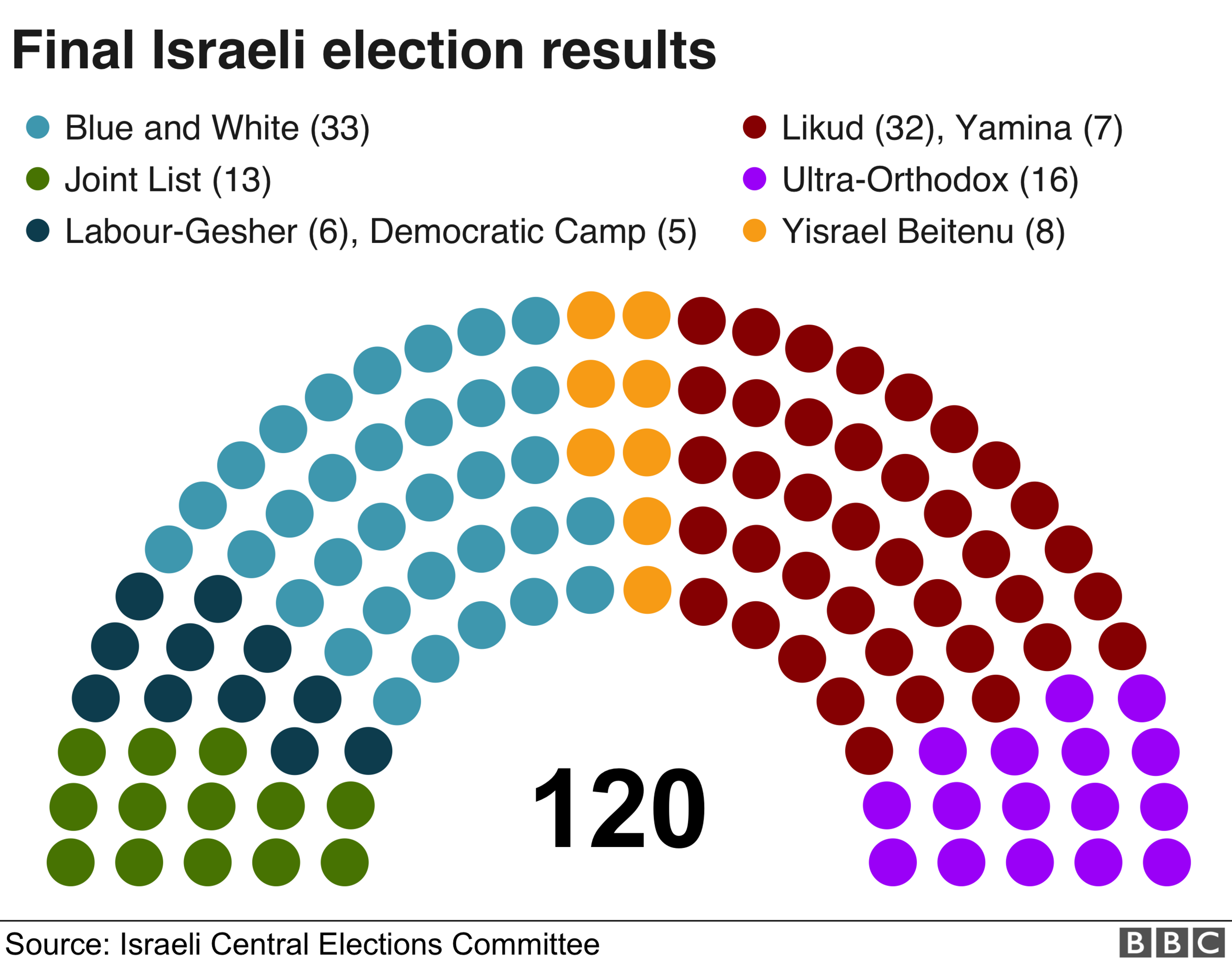
If Mr Gantz also fails, parliament could put forward a third candidate in a final bid to avoid another election.
Negotiators from Likud and Blue and White will meet on Sunday for coalition talks, officials announced.
Mr Gantz will also hold talks on the same day with the right-wing secular party Yisrael Beiteinu (Israel Our Home). Talks with the left-leaning Labour-Gesher and Democratic Camp will follow on Tuesday.
Sources in Likud quoted by Israeli news website Ynet, said they feared Mr Gantz would try to form a minority coalition, external with the sole intention of ousting Mr Netanyahu.
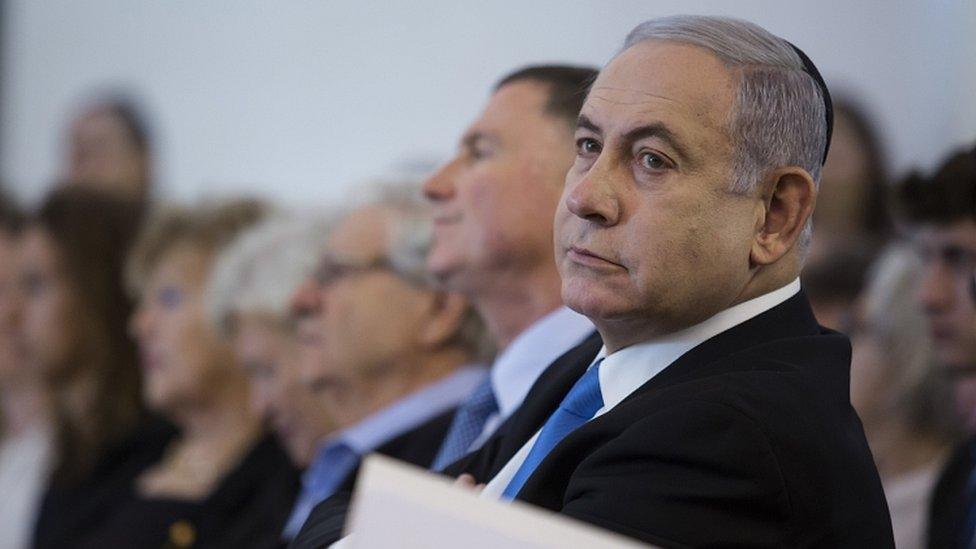
Mr Netanyahu has been in power for the past decade
Mr Gantz is a former head of the Israeli military and served in that role while Mr Netanyahu was prime minster. He rose to political leadership after forming his party in February, saying that the country had "lost its way".
Mr Netanyahu has far more frontline political experience, but is facing his own battle over corruption.
While trying to negotiate his coalition in October, he also attended hearings with the attorney general, who will decide whether or not to charge Mr Netanyahu with bribery, fraud, and breach of trust in three cases. Mr Netanyahu has denied any wrongdoing.
- Published19 September 2019
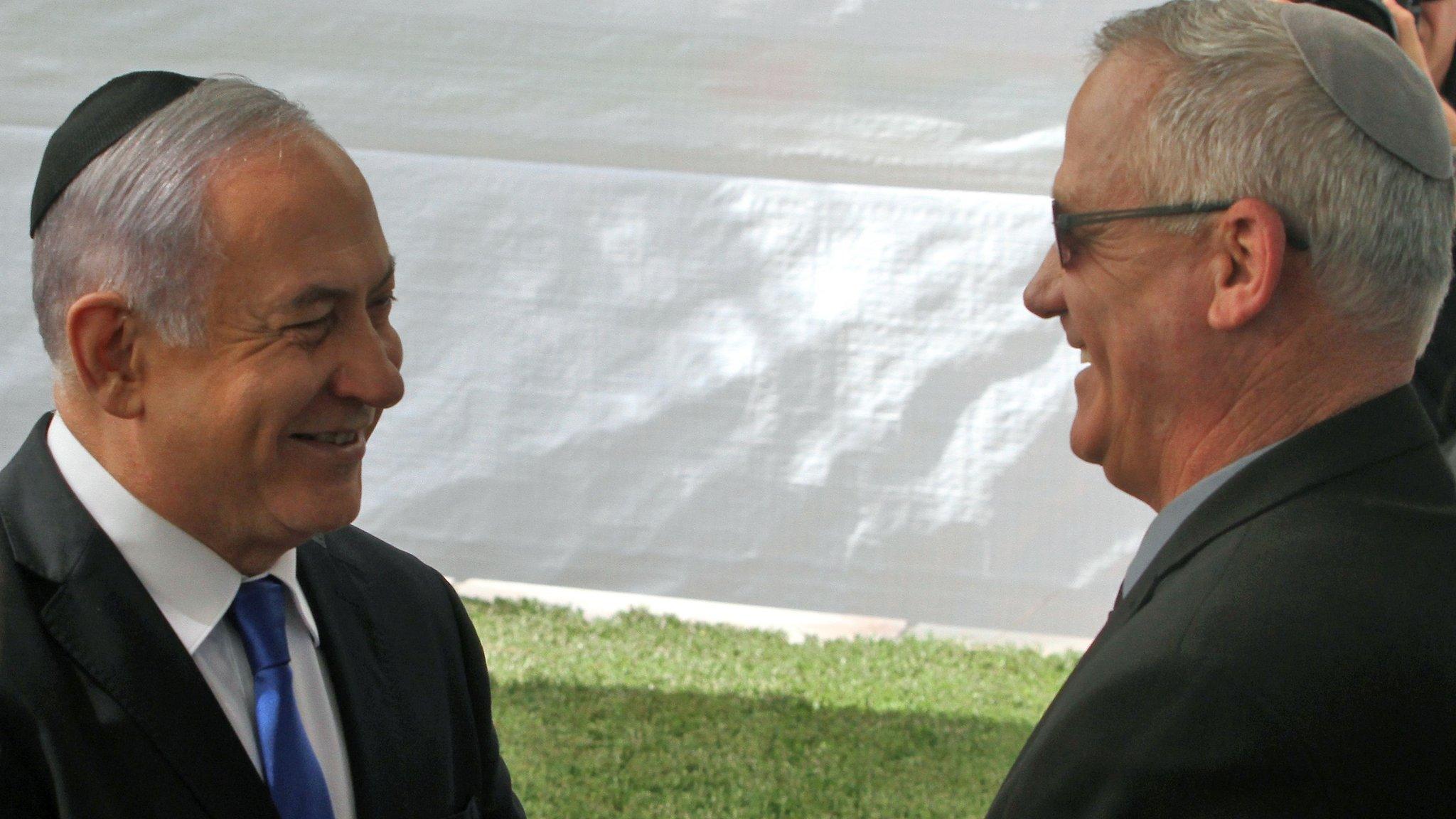
- Published23 September 2019
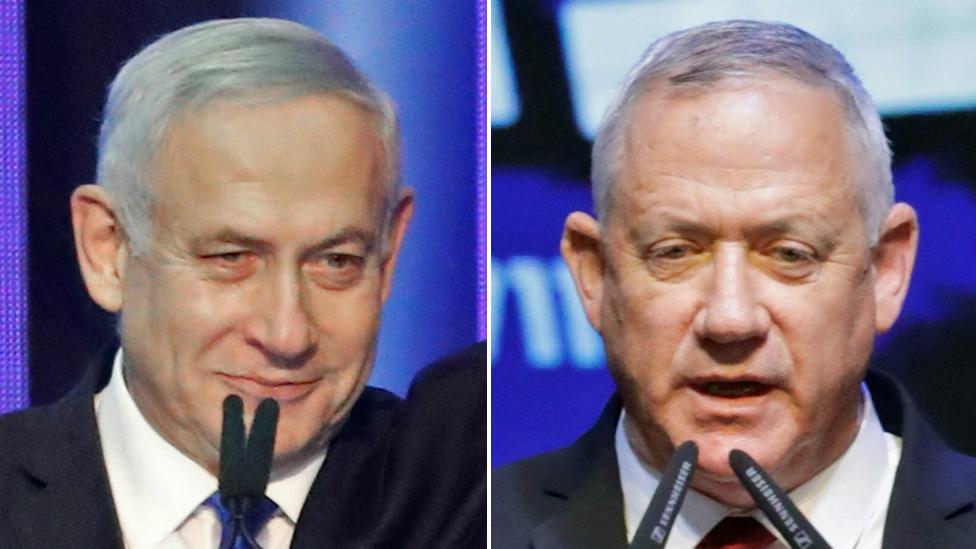
- Published18 September 2019
